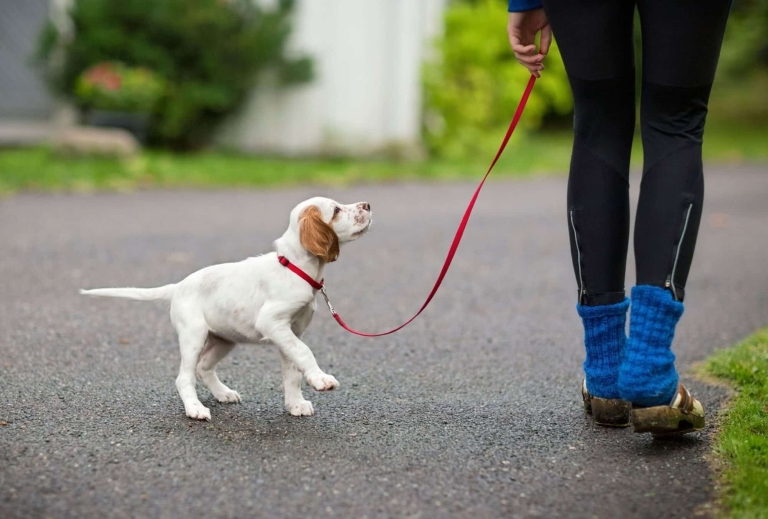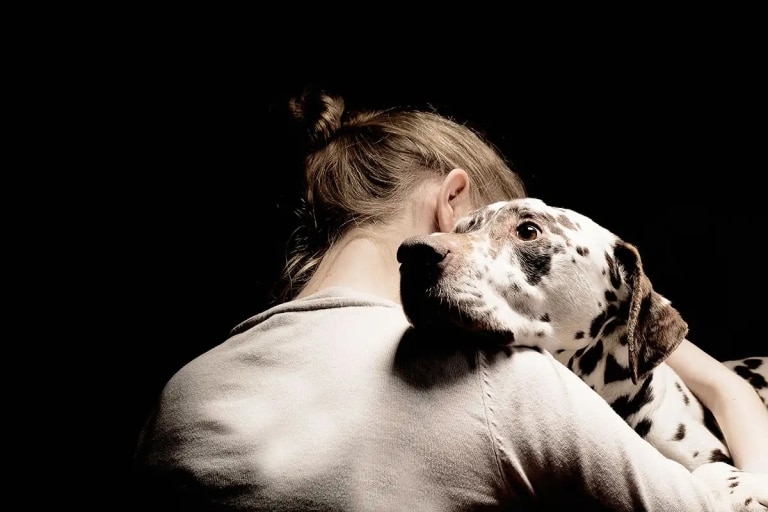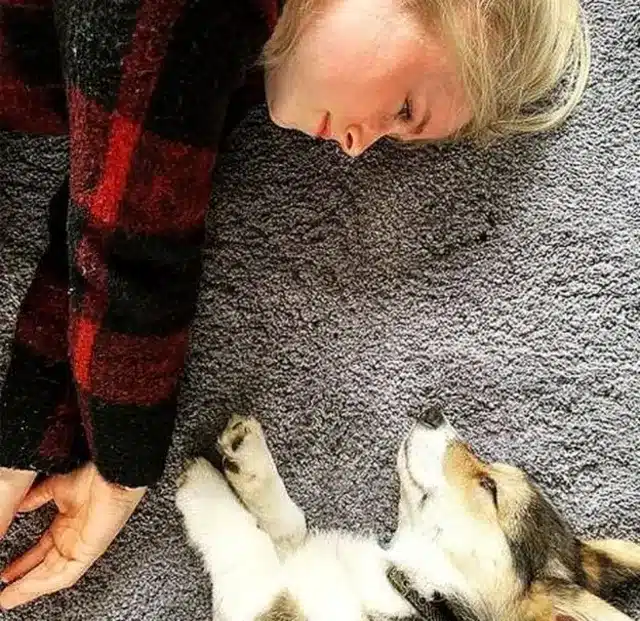
We think that everyone at least once in their life heard how in the morning after the neighbor went to work, his beloved dog began to sing loud serenades, disturbing your pleasant rest. Or you, tired after the day’s work, enter the house, and there you are waiting for a pile of rags from your favorite chair. You are angry, upset and don’t know what to do. A loved one who experiences separation from you so hard that, trying to cope with the entire spectrum of emotions, is unable to behave adequately is in an equally embarrassing situation. Nowadays, when the war is going on in the country for the third year, there are also enough events that radically change the daily routine of Ukrainians and, accordingly, their dogs, which proportionally increases the level of anxiety. We are talking about such a common phenomenon among dogs as separation anxiety. This is a condition where a pet experiences severe stress and anxiety due to separation from its owner or being left alone. Let’s look at the causes, symptoms and ways to deal with separation anxiety in dogs.
Causes of separation anxiety

Separation anxiety can be provoked by many factors, which can generally be divided into the following categories:
- Relocation or change of residence. After 2022, the number of internally displaced persons who voluntarily or forcibly left their homes increased. The dogs also went on a long journey with them.
- Divorce with the owner. If a dog is attached to one owner, his absence can be a traumatic experience. This is especially true of Ukrainian servicemen who are far from home while on duty.
- Changes in the family. In Ukraine, thousands of citizens will never return home, where not only relatives, but also loyal friends were waiting for them. However, the reason can also be joyful news: the birth of a child, the arrival of relatives, the start of a couple’s cohabitation.
- Traumatic experience. Dogs that have experienced traumatic events (for example, being in a shelter, on the front line, in hot spots) are more likely to suffer from separation anxiety.
Symptoms of separation anxiety
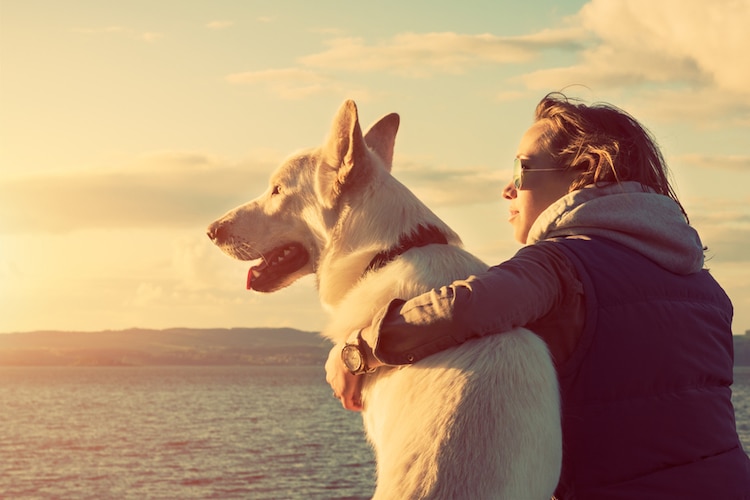
At the beginning of the article, you already got a little familiar with the physical manifestations of separation anxiety, which occur when the dog is left alone or when he feels that the owner is going to leave. Below we list in more detail the most common symptoms that will help you understand that your pet needs help to cope with stress:
- Constant barking or whining. This is the most common symptom when a dog is left alone. He can do this continuously.
- Destructive behavior. The dog may gnaw on furniture, doors, shoes or other objects, especially near the exit.
- Escape attempts. Dogs may try to escape through windows or doors. Escape attempts and destructive behavior can complement each other, as damage to doors and windows is more likely to be triggered by attempts to escape.
- Constant walking back and forth. The pet can nervously walk here and there, not finding a place for himself.
- Improper bowel movement. Some dogs may start defecating at home, even though they never did before.
- Excessive drooling or shortness of breath. These are physical manifestations of stress.
- Anorexia. The animal may refuse food and water when you are not around.
- Self-harm. A dog may lick or bite itself until wounds or fur loss occur.
How to deal with separation anxiety: how to treat or how to prevent
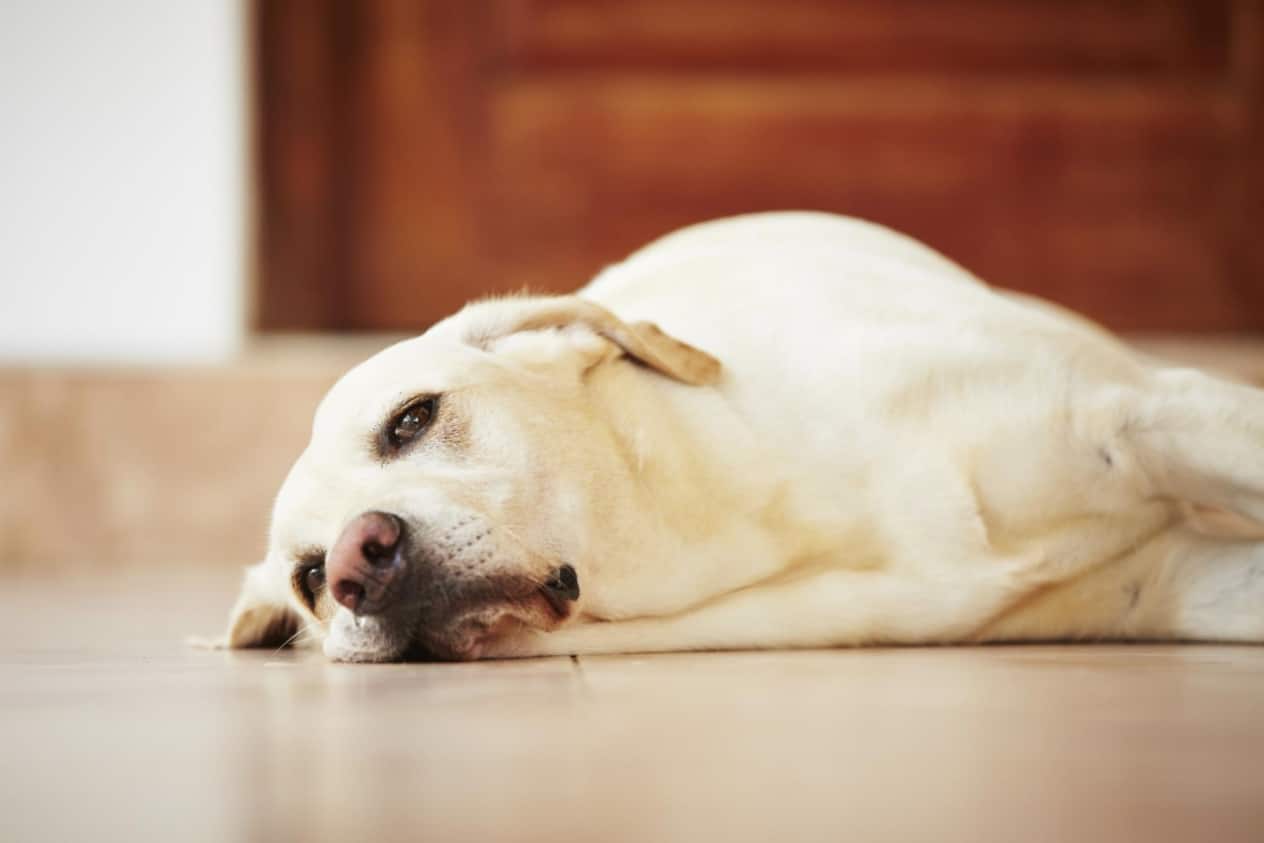



It is much easier to prevent separation anxiety in a dog than to treat it afterwards, but not everything is so gloomy. Your patience, attention and time can do amazing things. The following ways to prevent or minimize separation anxiety are quite effective, so check them out and think about what you can do today.
- Gradual adaptation to loneliness. Start with short periods of separation (a few minutes), gradually increasing the time to an hour or more. This will help the dog get used to your absence. Remember to use positive reinforcement for calm behavior.
- Creating a safe corner Provide the dog with a comfortable place to rest, toys and objects that remind you of you (for example, your smelly thing). Puzzle toys or ones that can be filled with treats can help distract him and associate your absence with something pleasant.
- Mode of the day. Set a clear schedule for walks, feedings and games. A dog likes stability, and this will help him feel more at ease.
- Physical activity. Keep your pet busy with exercise and games before leaving him alone. This will help reduce energy and anxiety levels.
- Ignore training. Before leaving the house, don’t make big goodbyes, so that the dog does not perceive your arrival or departure as something extraordinary. Don’t try to give the dog a lot of attention right away.
From the first time, all these tips may not work and your pet will continue to meet you with surprises. The main thing is not to scold the dog for destructive behavior caused by anxiety. This can only make the situation worse. He’s not trying to make you uncomfortable, he’s just trying to cope with stress on his own.
If the separation anxiety is very strong and independent attempts do not bring results, you should consult a veterinarian. He will be able to examine your dog, determine the degree of anxiety and provide recommendations for further actions. In some cases, the veterinarian can prescribe drugs that will help reduce anxiety (antidepressants, anxiolytics), or special supplements that contain natural components that help reduce stress. In other cases, it may be advisable to contact a dog trainer or a zoo psychologist, who will help develop an individual behavior correction plan. Remember that you are not alone and there are specialists who can make life easier for you and your pet.
Zoo hotel as a solution to the problem
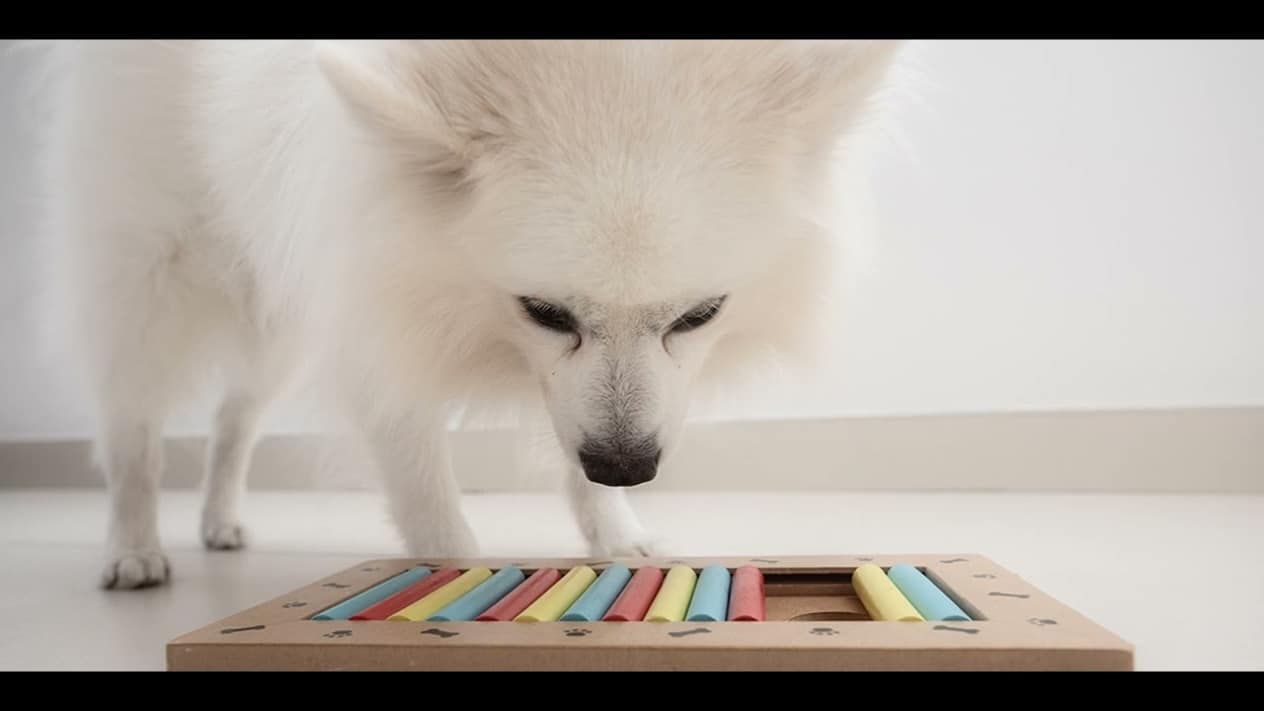
If you have to leave your dog alone and he has separation anxiety and is having a hard time with it, a pet hotel can be the solution to this problem. It will provide your pet with comfortable conditions and the necessary attention during your absence. When thinking about whether you should choose this option, consider the advantages of a pet hotel:
- Security and surveillance. In the pet hotel, the dog will be under the constant supervision of professionals, which will reduce the risk of loneliness and dangerous situations.
- Socialization. The dog will have the opportunity to communicate with other dogs, which will help him develop social skills and distract from anxiety.
- Physical activity. Pet owners often offer regular walks and games to help your pet burn off energy and reduce stress.
- Professional care:. The zoo employs professionals who know how to deal with animals that have separation anxiety and can use special methods to calm them down.
- Ensuring a routine. Sticking to a regular routine can help your dog feel calmer and more comfortable.
- Individual approach. The employees of the zoo hotel take into account the peculiarities of the character and needs of each animal, providing individual care.
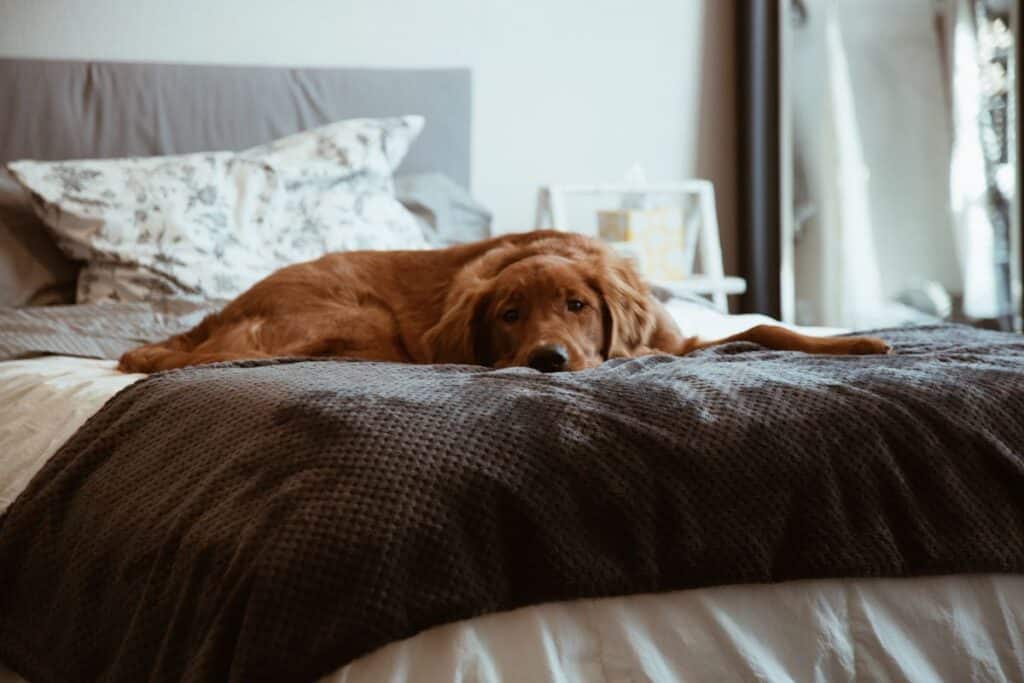
Before choosing a pet hotel, make sure that it has a good reputation, proper housing conditions and experienced staff. It is important to visit a dog hotel with your dog before leaving him there so he can get used to the new environment.
Network of grooming salons “V.O.G DOG” in the village of Kryukivshchyna of the Kyiv region has a zoo hotel. Its feature is the individual placement of the animal. The zoo hotel offers a spacious, clean and ventilated room with a sofa for animals and everything necessary for a full life for your dog. Your special requirements are taken into account, such as diet, number of walks, contact with other animals, grooming, etc. The staff will do everything possible to keep your pet stress-free and happy.
You can find out more information about how to choose a hotel for animals on our website at the link:
https://vogdog.com/yak-vybraty-hotel-dlia-tvaryn-porady-shchodo-poshuku-ta-otsinky.



